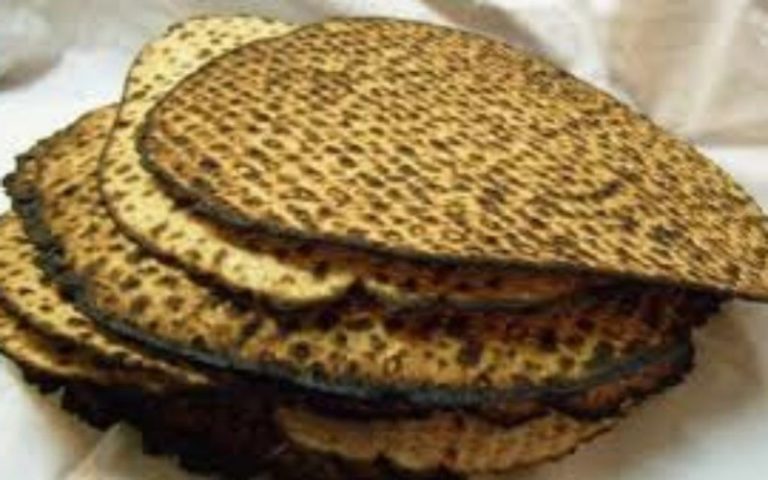 [By Rabbi Yair Hoffman]
[By Rabbi Yair Hoffman]
There is beer – and there is stout beer. Stout beer is darker beer than the regular beer generally served at Shalom Zachars. It is made with roasted malts or roasted barley. Stout beer is a lesson in contrasts. The rough tastes of the roasted grains are tempered by the sweetness of an added sugar – lactose. Lactose is a sugar that doesn’t ferment. It does not lose its sweetness to alcohol and thus adds more sweetness and body to the beer.
The problem is that lactose is a sugar that is derived from whey, a dairy product.
Poskim have ruled that anything that comes from milk is considered milchig. The FDA, however, the agency in charge of making sure that ingredients are listed properly on food items- does not require that lactose be labeled as dairy.
Readers should therefore be careful to make sure that they realize that stout beers are milchig – aproblem for those who are fleishig, and a problem for those who are strict to only consume Chalav Yisroel products.
According to the Star K, Domestic, German, English, European, and Canadian beers and ales are acceptable.
Which beers are generally a problem?
Fosters
Guinness Stout
Lighthouse Brewing Co. Inc
Moorhouse’s
Murphy’s Irish Stout
Sol
Wooden Hand Brewery
Brooklyn Brewery
Coors
Dogfish Head Brewing
Samuel Adams Brewing co.
Thirsty Dog Beer
Okay, so now that we know to stay away from these beers, what is the source that Chazal forbade eating or drinking dairy products after having eaten meat?
The Gemorah (Chullin 105a) tells us:
Rav Chisda says: One who ate meat is forbidden in eating cheese. One who ate cheese [,however,] may eat meat. It further explains that Mar Ukvah differentiated his behavior from the more pious behavior of his father. He stated, “Although I would not eat cheese in the same meal as meat, I would eat cheese “leseudasah acharisa – at the next meal.”
The Rishonim debate the exact meaning of “leseudasah acharisa.” Does it mean a set time of six hours? Or does it mean that they cannot be eaten in the same meal?
The Rambam, Rashba and Rosh all hold that it means six full hours. (Although some people read the Rambam in a way that could mean five and ½ hours.) Tosfos holds that it just cannot be eaten in the same meal – that one can just make a bracha achrona, and eat and drink something in between that cleans and rinses the mouth. The Poskim have written that even according to this second view, one must still wait at least one hour in between the two.
So how do we Pasken? Believe it or not, it is slightly complicated. Sefardim ruled like the first view l’halacha. It would be a violation of halacha if they were to adopt the second view.
Originally, a good portion of Ashkenazic Jewry followed the second view and thus waited three hours, or one hour, but many gradually adopted the Minhag to follow the six hour view. Indeed, it has almost become universal in Ashkenazic circles to wait the full six hours.
According to the Chochmas Adam (40:13), if an Ashkenazi Jew had the family custom to follow the six hour view, he would be in violation of Al titosh Toras Imecha” do not abandon the Torah of your mother – if he were to change to the three or one hour custom.
SICK PEOPLE AND CHILDREN
There are cases, however, when even an Ashkenazi Jew whose custom is to wait six hours may wait less time. They are:
• A sick person who requires dairy
• a child less than nine who requires dairy
• a nursing woman who requires dairy
They may all recite a bracha achrona, wait one hour, clean and rinse the mouth, and eat dairy.
A child less than three years of age does not have to wait between milk and meat. One should begin training a child age three and up to start waiting at least one hour. Some say that he should gradually build up to wait the six hours.
REASONS WHY WE WAIT SIX HOURS
There are two major opinions that deal with the reason for this six hour time frame of Mar Ukvah. They are Rashi and the Rambam:
• Rashi (Chullin 105a) explains that swallowing meat leaves a fatty type of residue in the mouth and throat of the meat consumer. This residue lasts a rather long time.
• The Rambam (Hilchos Basar VeChalav 9:28) explains that there are particles of meat that can park themselves in between the teeth, and the milk can mix with it.
The Tur explains the differences between the two opinions. According to Rashi, it is only swallowing meat that creates the residue. Thus, if someone chewed meat for a child but didn’t swallow it, he would still not be considered fleishig. According to the Rambam, if meat remained in between the teeth for more than six hours, it is permitted because it is no longer considered meat. According to Rashi, meat still stuck in the mouth may not be consumed with milk.
We rule in Shulchan Aruch (YD 89:1) like both Rashi and the Rambam in regard to this issue. Therefore, if someone neither chewed nor swallowed the meat, but just tasted it with his mouth and spat out the food – he may just wash out his mouth and eat dairy (Darchei Teshuvah 89:10).
The author can be reached at [email protected]











11 Responses
This post needs to be revised.
1) The post implies that all Samuel Adams has lactose, which is definitely untrue. Most flavors are under hashgacha of the Star-K which prohibits chalav stam. Perhaps some flavors are a problem and not under hashgacha but your post implies everything is a problem.
2) Even most stouts do not contain lactose. Stouts with lactose are generally labeled “milk stouts” “sweet stouts” or “cream stouts”. Regular stouts are generally lactose fee, but check with a kashrus professional.
R’ Hoffman you do a great service to the tzibbur with your posts but please be extra careful with your facts and your wording before paskening.
Just to add to the previous comment. Be more specific. Colors has a hechsher. Maybe you mean a specific type of Coors beer.
Does this affect its alcohol content? or intoxication level?
As the first comment mentions, Generally stouts that have lactose added are referred to as milk stouts. Straight stouts would not have lactose. If lactose was added it would be indicated in some way on the label
thank you for the info. I never new stouts had a problem. I will stop drinking them.
“regular beer generally served at Shalom Zachars” – Is that the only time beer is served?
Guinness is a dry stout, not a milk stout. It contains no dairy products. The famous Guinness brewery in Dublin is under supervision by the Irish Rabbinate; I was hosted for a Shabat meal by the mashgiach! However, Guinness bottled beer that is sold in the US is brewed in Canada by Labatt’s.
I am surprised that Rabbi Hoffman did not check this out before writing this article.
Lactose is not a dairy product according to R.Elyashiv zt’l. Kovetz Teshuvos Y”D 73
http://www.kosherveyosher.com/lactose-reb-elyashiv-teshuva.html
#8 thank you for the link. I have copied it here.
now I can drink stout again.
Lactose is not a dairy product.
Rabbi Yosef Shalom Elyashiv [recognised internationally as The Posek Acharon ,the supreme and final Halachic authority in this generation] explains [Kovetz Teshuvos Y”D 73] that lactose, although derived from milk, is not a dairy product with respect to two Halachos:
it is not restricted by laws of Chalav Akum, milk that requires Jewish supervision from milking.
it may be eaten after meat.
There are two reasons for this;
It goes through a process that renders it unfit for consumption.
It is extracted from whey which in the eyes of Halacha is not a dairy food.
Although the Shach prohibits eating a combination of whey and meat [Y”D 87:17] this is due to Maris Ayin, since whey appears to look like milk. However, eating them not in combination but after one another, is likely permitted.
R Elyashiv also quotes the KeNesses HaGedola 115, who rules that whey is not subject to the decree of Ch Akum. Thus lactose derived from whey which comes from Ch Akum is Kosher without any restriction.
Although the article is well written, and as a non-Rav, I cannot argue with the halachic opinion as to lactose, I do have a problem with the mitziyus.
I have spoken with the Rav HaMachshir for Brooklyn Brewery and confirmed that the 12oz bottles of Brooklyn’s Dry Irish Stout and their Dark Chocolate Stout do not contain lactose. (Please note that only Brooklyn Brewery beers made in the Utica plant are under hashgacha. The beer produced in the Brooklyn based plant is not under any kosher supervision).
I also have received e-mails from the Star-K which indicate that the Samuel Adams Cream Stout is not dairy and e-mails from the OU which state that the Coors Stout products are not dairy.
Of the remaining beers, I am not aware of any which are under hashgacha, but I also don’t know if any of them use lactose.
Both Guinness and Murphy’s are kosher certified, at least in some parts of the world, and the recipe is always the same.